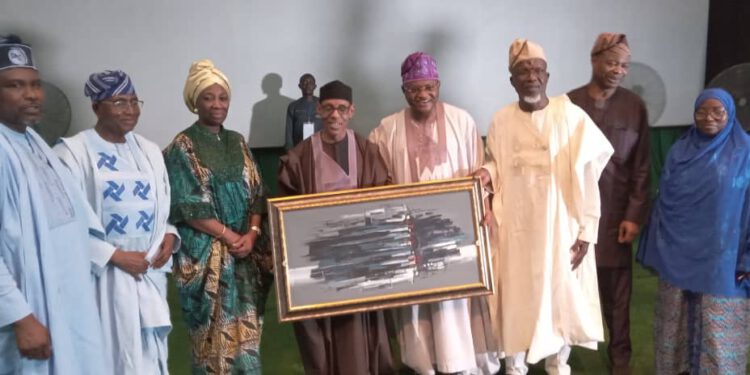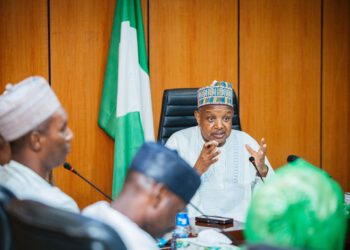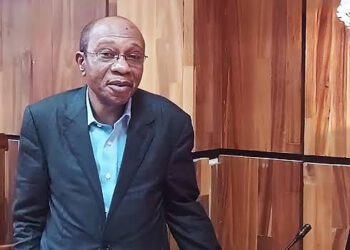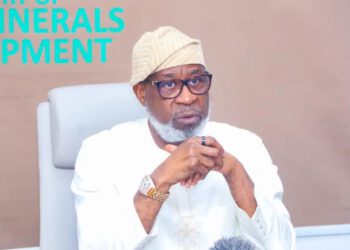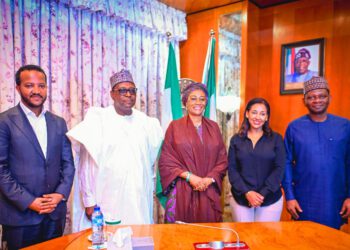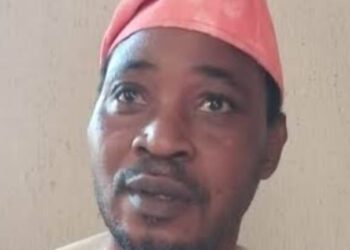The Federal Government has stated that the stark realities faced in the country today, including the rising cost of living and pessimism over prospects for socio-economic growth, are consequences of our past. It also believes that the road to our current situation was filled with missed opportunities and tragic failures to capitalize on the country’s great potential.
Vice President Kashim Shettima conveyed these sentiments in a message during the 29th annual Pre-Ramadan Lecture organized by the University of Lagos Muslim Alumni, held at the Main Auditorium, UNILAG, Akoka. Represented by his Special Adviser on Political Matters, Dr. Hakeem Baba Ahmed, the Vice President emphasized that the country cannot continue in the past direction and that the new government is prepared to address Nigeria’s challenges.
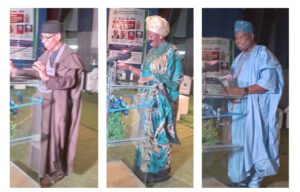
He acknowledged that the current economic reforms are difficult and challenging, particularly impacting the poor. However, he clarified that the administration does not aim to make lives more difficult for Nigerians or deceive citizens about the necessity for pain or sacrifices in achieving these reforms.
Shettima insisted on the pursuit of homegrown solutions to problems rather than relying on foreign interests, which could be counterproductive. He assured that the government would consider some of the submissions made during the annual Pre-Ramadan Lecture in its review of economic reforms.
The Vice President also recognized that this year’s Ramadan fast would present severe challenges for many Nigerians, emphasizing that it is a period for sacrifices with deep gratitude to Allah.
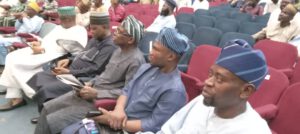
He assured that Nigerians would be allowed to express their feelings about the current situation in a responsible and mature manner.
Earlier, the Vice Chancellor of the University of Lagos, Prof. Folashade Ogunshola, represented by the Deputy Vice Chancellor of Development Services, Prof. Ayodele Asenoa, said the school is proud of religious harmony and expressed hope that the lecture would help Nigerians better understand the policy drive of the federal government.
She emphasized the significance of the program, which has been sustained for over a quarter of a century, putting religion side by side with academics.
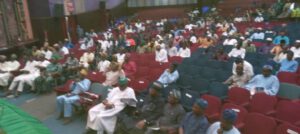
In the first lecture, Mr. Niyi Yusuf, Chairman of the Nigeria Economic Summit Group, highlighted the challenges of doing business in the country, including security issues, kidnapping, and climate change. He attributed most of the country’s problems to structural issues and corruption without consequences, questioning why the problem with the Apapa gridlock could not be solved for years.
Yusuf suggested the need to tackle corruption, inflation, rising debt, erratic power supply, block leakages in NNPCL and FIRS, increase in agriculture and manufacturing, and address population explosion for the nation to progress.
According to him, Nigeria, being the 8th largest producer of oil and 32nd in terms of landmass in the world, shows that the country is blessed with potential but not well harnessed.
In his Yoruba lecture, Sheikh Dawud Afanla Abdulmajeed Eleha, Mudeer Morkaz Daru Salam, Gbede, called on President Tinubu to clarify where he was headed with the mandate given to him. He stressed that the path to rebuilding Nigeria must involve everyone and not just pointing accusing fingers at the political class.
The cleric challenged the nation’s leaders to learn from the way Prophet Muhammad governed during his time, emphasizing transparency, justice, and fairness for all.
One of the contributors to the lecture, Prof. Jameelah Yaqub, said the country should be wary of taking advice from the World Bank and other international financial bodies, adding that our reforms are often counterproductive.
Chairman of the occasion, Prof. Yusuf Alli, represented by Alhaji Sabit Adewale Shonaike, emphasized that economic reforms must aim to improve the well-being of the people and not impose hardships on them.
He noted that the unprecedented effects of hardship on Nigerians, compounded by insecurity in many parts of the country, have limited people’s chances of success.
According to the Senior Advocate of Nigeria, the need for economic reforms is imperative since the government came into office less than a year ago, adding that any reform that does not reduce the cost of governance amounts to nothing. He advocated for strong political will to tackle corruption and greed for economic activities to thrive.
President of the University of Lagos Muslim Alumni, Prof. Khalid Adekoya, stressed that the government must critically examine fiscal and monetary policies to reduce rising economic hardship. He expressed hope for better times if all stakeholders adhere to global best practices.
Prof. Adekoya explained that the annual Pre-Ramadan Lecture aims to educate Muslims on the essence of the 30-day fast but also focuses on contemporary issues in the country and globally. He solicited continued support for all UMA programs, especially the annual Scholarship Award.
In his comments, the Olota of Ota, Oba Adeyemi Obalanlege, acknowledged the current difficulties but expressed belief in eventual relief through economic reforms.
The 29th annual UMA Pre-Ramadan Lecture was titled “Economic Reforms for Nigeria: Challenges and Prospects for the Future.”


